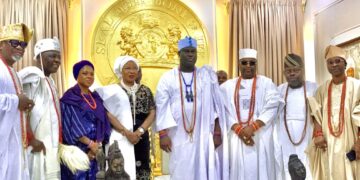Paystack has suspended its co-founder and Chief Technology Officer, Ezra Olubi, after fresh allegations of sexual misconduct surfaced online.
The issue gained traction when Nigerians unearthed old posts following claims by his former partner, Max Obae, popularly known as Maki. She accused Olubi of abuse, misogyny and sexual exploitation, stating that she ended their relationship through an email titled “Severance.”
Maki further alleged that Olubi misled women by presenting himself as gay to gain their trust before subjecting them to degrading acts and financial manipulation.
In a statement to TechCabal, Paystack confirmed that Olubi had been removed from his duties pending a formal investigation.
“Paystack is aware of the allegations involving our Co-founder, Ezra Olubi,” the company said. “We take matters of this nature very seriously. Effective immediately, Ezra has been suspended from all responsibilities while a formal review is conducted.”
The company added that it would not issue further comments until the investigation is completed.
The uproar has also revived dozens of Olubi’s decade-old tweets containing sexually explicit comments, including remarks about colleagues, minors and sexualised content. Posts from 2010 to 2017 showed Olubi joking about inappropriate behaviour during meetings and making offensive remarks about women and minors.
One tweet from May 23, 2011 read: “Monday will be more fun with an ‘a’ in it. Touch a coworker today. Inappropriately.”
Another from 2010 claimed: “I hear sex with a minor cures HIV… Your neighbour’s daughter isn’t looking bad today.”
Olubi’s X account was deactivated on Thursday night. He has not publicly responded to the allegations or the resurfaced tweets.
The development comes as Africa’s tech ecosystem continues to confront misconduct cases involving senior executives. In October 2025, Kenyan IT firm Pawa IT Solutions saw its CEO, Oscar Limoke, fined by the Employment and Labour Relations Court after sexual harassment allegations pushed a staff member to resign.
The renewed scrutiny of Olubi’s online history has reignited broader debates about leadership accountability, workplace power dynamics and the extent to which past behaviour should shape perceptions of tech leaders today.










